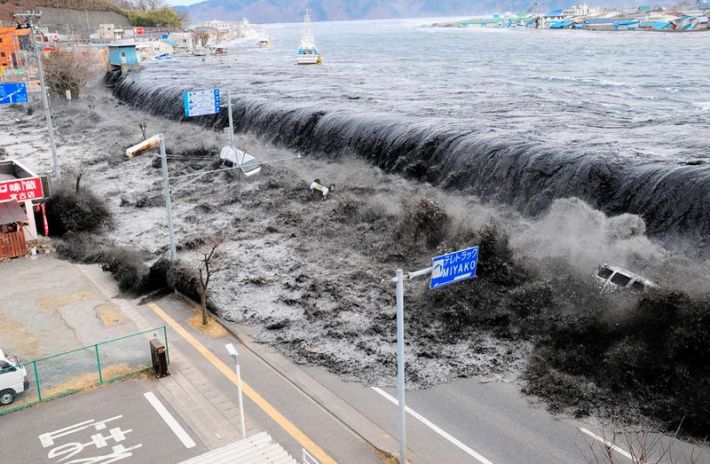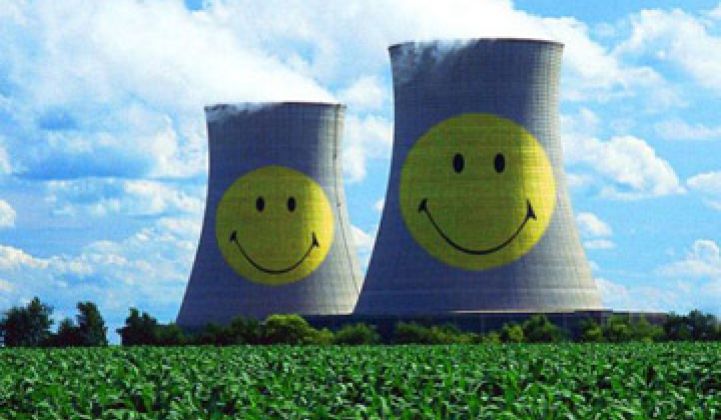Information, a person finder, and a way to donate can be found here. Another great technical resource is here.
According to the NRC, "All the available information indicates weather conditions have taken the small releases from the Fukushima reactors out to sea away from the population. Given the thousands of miles between the two countries, Hawaii, Alaska, the U.S. Territories and the U.S. West Coast are not expected to experience any harmful levels of radioactivity."
And here's an article that claims the opposite.
Within hours of the disaster, I started receiving press releases from environmental groups attributing the tsunami to global warming -- which only serves to make global warming activism look ridiculous.
And then came the barrage of press releases condemning nuclear power. One press release actually said "WE TOLD YOU SO." (Capital letters theirs.)
And no doubt, the situation at up to three nuclear reactors in Japan is critically serious. According to reports, the reactor core has been exposed at at least one of the sites and seawater is being used to prevent a meltdown. It's a dire situation that will result in further environmental degradation and health effects. There's no doubt about it -- nuclear power is dangerous stuff.
Forbes reports that former commissioner at the federal Nuclear Regulatory Commission (NRC), Peter Bradford (he was at the post during the Three Mile Island incident), said, “I’ll be quite surprised if the events at Fukushima are ultimately considered to be less serious than TMI,” adding that more people have already been exposed to high levels of radiation in Japan than were exposed at TMI.
But here's the reality check: coal, natural gas, and oil have killed far more people than nuclear power. Coal miners perish, the act of fracking natural gas pollutes water tables, and coal plants poison our air and water.
Energy production and hydrocarbons are a dirty, dangerous business and there are human and environmental costs to be paid to extract and unleash the power contained in these materials. It's one of the costs we pay for our enhanced existences that we achieve via ready access to power.
It's just that nuclear power plant failures are point source events and make for dramatic television and easy scapegoats for alarmists. There are more than 100 operating nuclear plants in the U.S. producing hundreds of gigawatts of baseload power. We can't do without them -- at least not just yet. And using the disaster in Japan as a rallying cry for anti-nuclear sentiment is a shameless argument.
And one more note -- producing solar panels, fuel cells, and batteries, and while we're at it, computers and mobile phones, is also a toxins-intensive business. If a tsunami floods electronics and solar factories, there is an inevitable release of arsenic, gallium, cadmium and other nasty elements into the environment. Maybe that's a reason not to pursue solar power or use a cell phone.
I absolutely agree that energy policy in the U.S. and across the globe should focus on improved energy efficiency and the rapid deployment of renewable energy sources. If renewables can reach scale and cost targets, let's use renewables instead of nuclear power.
In the meantime, existing nuclear power plants are a reality and must be made safer and more reliable.




